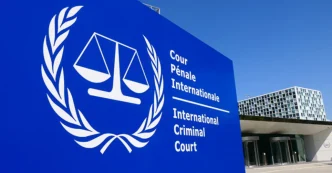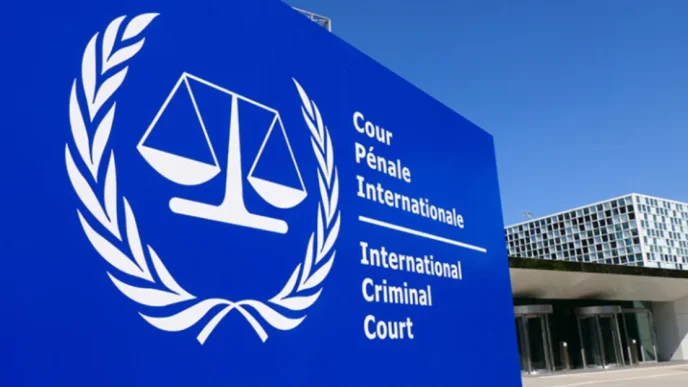A recent trade agreement between Indonesia and the United States, heralded as a historic milestone in digital trade, has ignited a fierce debate over privacy rights, digital sovereignty, and the readiness of Indonesia’s legal framework to protect its citizens’ data. Announced in a White House press release titled “Fact Sheet: The United States and Indonesia Reach Historic Trade Deal” the agreement includes a provision under which Indonesia will recognize the US as a jurisdiction providing adequate data protection for cross-border personal data transfers. While this move promises to ease digital trade barriers, it raises profound questions about whether Indonesia’s nascent data protection regime can safeguard its citizens against potential surveillance and exploitation in an uneven global digital landscape.
A Landmark Deal with Hidden Risks
The agreement, detailed under the Removing Barriers for Digital Trade section of the White House fact sheet, aims to provide certainty for transferring personal data from Indonesia to the US. For years, American tech companies have pushed for such reforms, seeking to operate as personal data controllers under Indonesia’s Law No. 27/2022 on Personal Data Protection. This law, enacted to regulate how personal data is handled, permits cross-border transfers only if the receiving country offers an adequate or higher level of protection, if explicit consent is obtained from data subjects, or if binding contracts ensure safeguards. Yet, as Indonesia steps into this digital handshake with a global economic powerhouse, the deal’s implications extend far beyond technical compliance.
At the heart of the concern lies the asymmetry in data protection standards between the two nations. The US, despite being a major player in the global digital economy, lacks a comprehensive federal data protection law. Its intelligence frameworks, such as Section 702 of the Foreign Intelligence Surveillance Act (FISA), allow extensive government access to data of non-US citizens without robust legal remedies. This stands in stark contrast to frameworks like the European Union’s General Data Protection Regulation (GDPR), which prioritizes individual rights and has repeatedly invalidated data transfer agreements with the US—most notably through the Schrems I and II rulings by the Court of Justice of the European Union in 2015 and 2020, respectively—due to inadequate safeguards against surveillance.
For Indonesia, which is still in the early stages of implementing Law 27/2022, these global precedents serve as a cautionary tale. Without a fully operational data protection authority—mandated under Article 58 of the law but yet to be established—Indonesia lacks the institutional muscle to independently assess whether the US truly offers adequate protection or to enforce compliance through audits and sanctions. This regulatory gap leaves the country vulnerable as it navigates a deal that could expose its citizens’ personal data to foreign entities with limited oversight.
Digital Sovereignty at Stake
Indonesia’s digital economy, particularly its data center industry, has been poised to become a regional leader, bolstered by prior commitments to data localization. Article 20 of Law 27/2022 mandates that personal data controllers operating in Indonesia process and store data within the country’s borders unless specific cross-border criteria are met. However, the new trade deal’s potential exemptions for US-based companies threaten to undermine this policy. If multinational cloud and platform providers can route data back to US servers without investing in local infrastructure, Indonesia risks losing a competitive edge in attracting foreign investment to its digital sector.
This shift could have a chilling effect on the nation’s long-term digital sovereignty. The ability to control and protect national data is a cornerstone of modern statehood, yet the agreement appears to reflect a double standard in how such sovereignty is respected. The US has frequently raised national security concerns over foreign apps like TikTok storing American data in China, yet it now seeks similar access to Indonesian data through this trade framework. This disparity prompts a critical question: is Indonesia’s weaker bargaining position being exploited to sidestep its own legal principles in favor of trade concessions?
Privacy as a Human Right, Not a Trade Commodity
Beyond economic impacts, the deal poses significant risks to individual privacy and democratic integrity. Personal data, when mishandled, can become a powerful tool for manipulation, as demonstrated by the Cambridge Analytica scandal, where data harvested from social media platforms was used to influence electoral outcomes across multiple countries. In Indonesia, where political profiling, behavioral data, and social media activity could be repurposed by foreign or domestic actors, the absence of an independent oversight body amplifies these dangers. Without guarantees of redress or strict enforcement mechanisms, citizens’ data could be exploited to shape narratives, sway public opinion, or even tilt democratic processes through AI-driven micro-targeting.
The timing of the agreement adds another layer of uncertainty. With US foreign and trade policies often subject to abrupt shifts, Indonesia’s decision to recognize the US as an adequate destination for data transfers may lock the country into a framework that prioritizes geopolitical convenience over privacy rights. Critics argue that this move risks turning Indonesia into a passive data exporter, lacking the tools to shield its citizens from surveillance or profiling while undermining the growth of its local digital ecosystem.
Lessons from Global Best Practices
Indonesia stands at a crossroads, with much to learn from international approaches to data protection. The EU’s rights-based model, which places individual privacy above trade interests, offers a blueprint for balancing economic goals with legal safeguards. The Schrems rulings, for instance, emphasize that any third country receiving personal data must provide protections comparable to those within the EU—a standard the US has repeatedly failed to meet in European courts. For Indonesia, adopting a similarly cautious stance could mean delaying full implementation of the data transfer agreement until its Data Protection Authority is operational and implementing regulations are finalized.
Moreover, Indonesia could push for reciprocity in data protection commitments, ensuring that any framework with the US includes enforceable guarantees and mutual accountability. This would align with the principle that privacy, as a fundamental human right, cannot be subordinated to trade liberalization or geopolitical pressure. Public scrutiny of the deal, as advocated by some observers, is essential to ensure that the government prioritizes its citizens’ rights over expediency.
A Path Forward Amid Uncertainty
As Indonesia forges ahead with this landmark trade deal, the stakes could not be higher. The agreement, while framed as a step toward digital integration, exposes critical gaps in the country’s regulatory and institutional readiness to protect personal data. It also highlights a broader tension between economic ambition and digital sovereignty—a tension that could shape Indonesia’s role in the global digital economy for years to come.
Without a functioning data protection authority, robust oversight mechanisms, or a clear commitment to reciprocity, the risks of surveillance, data misuse, and economic disadvantage loom large. As the government navigates these uncharted waters, one thing remains clear: the true cost of this deal may not be measured in trade gains, but in the erosion of privacy and autonomy for millions of Indonesians. How Indonesia addresses these challenges will set a precedent for future negotiations, determining whether sovereignty can withstand the pressures of global trade.
















